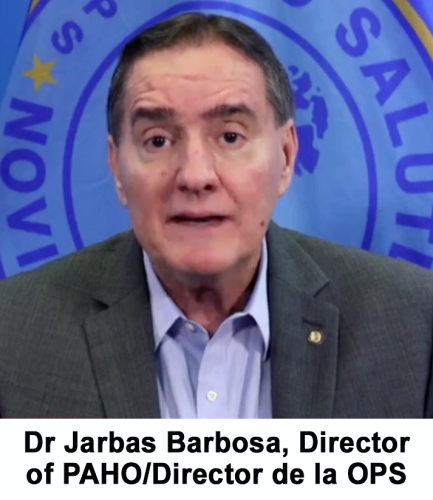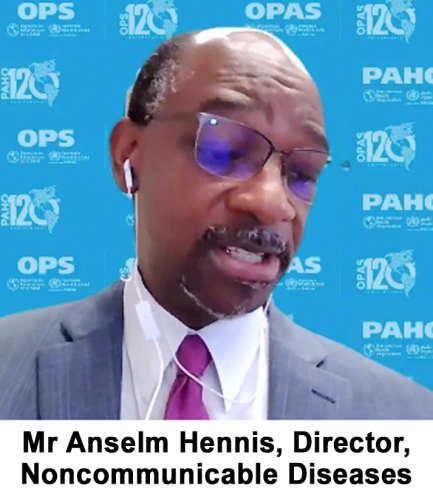Ahead of World Hypertension Day 2023, scheduled for May 17, the Pan American Health Organization (PAHO) held a press conference to urge countries of the region to better manage hypertension.
by Marco Lopez
BELIZE CITY, Thurs. May 11, 2023
Known as the silent killer, hypertension (high blood pressure) – or as we Belizeans call it, “presha”—is also the “biggest killer” across the region. This is according to the Director of the Pan American Health Organization (PAHO), Dr. Jarbas Barbosa, who shared in a press conference held today that 18% of adults across Latin America and the Caribbean require primary health care to control hypertension. This equates to roughly 180 million people, many of whom have absolutely no symptoms or signs that they suffer from the non-communicable disease until they are struck down.

The main risk factor of hypertension is cardiovascular disease – which is the leading cause of premature death in the Americas. At least 2 million lives are lost due to this condition yearly. Across the region, 50% of people over the age of 65 suffer from high blood pressure to some degree. Citizens of the English-speaking Caribbean, especially those of African descent, are particularly susceptible to the condition.
According to PAHO, over one-third of men, and a quarter of women in the Americas between the ages of 30 and 79 are unaware that they live with the condition. Only 36% of the people who do know that they have hypertension are actively seeking treatment.
Leading factors that cause high blood pressure include lack of physical activity, obesity, and high salt and alcohol consumption, among others. Governments across the region are being urged to encourage healthy lifestyles throughout their populations to curb the growing threat. Measures to reduce salt content and lessen consumption of processed and ultra-processed foods, and implementing front-of-package warning labels are some courses of action that are being advised.
At least 30 minutes of physical activity daily, cutting the daily salt intake to below 5 grams, and eating more fruits and vegetables, are some actions that can be taken by individuals.
Across the healthcare system in the region, facilities lack the vital equipment to manage hypertension, said Dr. Barbosa.
Through PAHO, countries can access devices, as well as antihypertensive medication, at a competitive price. This is through a pooled procurement mechanism for essential medicines and health technologies called the PAHO Strategic Fund.

According to Dr. Anselm Hennis, Director of Non-communicable Diseases at PAHO, the overall rates of hypertension in the Caribbean are higher than the regional average.
“So, overall there are about 23% of people in the Caribbean who have hypertension – that’s non-Latin Caribbean. Compared to 17.5% overall, it’s an increase of about 6 percent, and this is more significant for men, of whom about a quarter have hypertension, versus 20% for the entire region. And for women, about 20% in the non-Latin Caribbean have hypertension compared to about 15% in the overall region,” Dr. Hennis explained.
He added, “We have also seen, regarding the Caribbean, that African descent populations in the Caribbean have high rates of hypertension and complications such as stroke and heart disease; and this actually mirrors the situations seen in African American populations in the United States.”
Last year, for World Hypertension Day held annually on May 17, the Belizean Ministry of Health and Wellness revealed that 329 hypertension-related deaths have occurred in the country over the last 5 years.
As mentioned, individuals are urged to reduce their salt intake to less than 5 grams or just under 1 teaspoon a day, perform physical activity for at least 30 minutes daily, eat less processed food and more fruits and vegetables, and importantly, get regular blood pressure tests. A normal blood pressure reading is less than 120/80 mmHg.
As mentioned, a large number of people are completely unaware that they suffer from hypertension – making the broadening of access to treatment very important for Belize and countries across the region.

